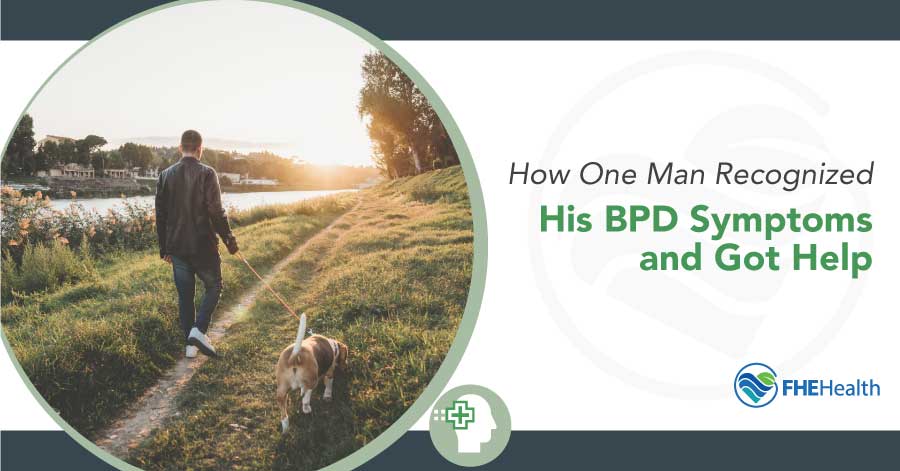
At first, Tyler didn’t identify his symptoms of BPD. He blew off his depression and anxiety because life was just kicking him around: he had personal relationships going wrong and feared that his boss would fire him.
Tyler was also angry all the time, but he decided that it must have been because of stress or sleep deprivation. He was drinking more than usual and running red lights, but again, he blamed his actions on his hectic lifestyle.
Over time, friends and family grew weary of Tyler’s cutting remarks and his reckless abandon. There were times when he was okay, but far too often he was sulky and self-destructive. No one ever knew what to expect from Tyler on the emotional front—not even Tyler himself.
His mother said that he ruined Christmas Day with his extreme mood swings and threats of self-harm. On Christmas Eve, he had been angry, as his girlfriend, a nurse, had not been able to spend the day with him because of an emergency at the hospital. He had felt rejected and abandoned and was convinced she no longer loved him.
Before Christmas Eve, Katie, Tyler’s girlfriend, had been complaining that he was continually snapping at her and accusing her of cheating on him. One day, Tyler was in love with Katie; the next, he acted as if he hated her. She couldn’t seem to keep him happy since his expectations were all over the place.
Moods constantly changed for Tyler, and anything Katie did was never good enough to make him understand how much she loved him. Katie knew something was wrong, so she recommended that Tyler get tested for bipolar disorder.
Tyler agreed to be assessed for bipolar disorder and was quite surprised to find the results. Even though his moods changed constantly, he did not have bipolar disorder as his girlfriend had suspected; instead, during his assessment, there were signs that he had borderline personality disorder.
What Is BPD?
Around 1.4% of adults in the U.S. are affected by borderline personality disorder (BPD). Mood swings, impulsive behaviors, and challenges with self-image result from difficulty with emotion regulation. Medication and therapy are the most common treatment options and manage these symptoms effectively.
BPD Symptoms
Tyler exhibited multiple signs of BPD before he was diagnosed with the condition. Borderline personality symptoms vary but may include the following:
- Intense and/or unpredictable mood swings
- Anxiety
- Depression
- Anger or irritability
- Chronic boredom
- Emptiness
- Instability, including splitting or devaluation, in personal relationships
- Fear of abandonment or rejection
- Dissociation
- Paranoia
- Impulsive and/or reckless behavior
- Irrational trust issues
Other potential symptoms of BPD include self-harm and suicidal idealization. These are serious and require medical treatment.
Identifying and Seeking Help for BPD
Receiving an actual diagnosis can be challenging, even when you display multiple symptoms of BPD. Borderline personality disorder often looks like other mental health issues, like depression, anxiety, and bipolar disorder.
Women make up three out of four diagnoses of BPD. Men like Tyler often get misdiagnosed with post-traumatic stress disorder or depression. Share all the symptoms of BPD you experience when seeking treatment to improve your chances of an accurate diagnosis.
Risk Factors and Causes of Borderline Personality Disorder
Several risk factors & potential causes may contribute to BPD. Talk to your mental health care provider if you notice any of these:
- A family member has borderline personality disorder.
- You’ve faced serious trauma, like sexual or physical abuse.
- You experienced neglect as a child.
- Your parents abandoned you, or you grew up in foster care.
- You’ve been diagnosed with brain function issues that affect emotional regulation.
Don’t panic if any of these sound familiar. These factors don’t guarantee a BPD diagnosis.
Steps You Can Take To Treat BPD
Symptoms of BPD often need a mix of medical treatments. FHE Health helps you choose a treatment plan based on how severe your symptoms are.
Tyler, upon learning he had a personality disorder, opted for various treatments to maximize his chances of success. Psychiatric medications & therapy with a trusted provider helped him manage his symptoms. Here’s a look at some steps to treat BPD symptoms:
- Medication: Psychiatric medications help many manage their BPD symptoms.
- Dialectical behavior therapy: This type of therapy helps patients control emotions & reduce destructive behaviors.
- Cognitive-behavioral therapy: This therapy helps patients challenge harmful thoughts & behaviors.
- Hospitalization: Inpatient & outpatient programs provide a safe, supportive environment for patients to cope with BPD.
Treating BPD also means addressing other conditions that affect your mental health. This might involve prescription medication for anxiety or therapy for past trauma that affects your present. Family members and friends might also benefit from therapy to better understand how to support a loved one with BPD.
Overcoming the Challenges of Borderline Personality Disorder Treatment
It can be scary and challenging to seek borderline personality disorder treatment, especially if this is the first time in a mental health setting. FHE Health realizes the struggle for patients and loved ones when a decision for professional help has been made. That is why we offer safe behavioral health services from informed providers who specialize in mental health and addiction.
Alleviate the Symptoms of BPD with Treatment at FHE Health
Mental health concerns can’t always be solved with self-care or a quick vacation. At FHE Health, we personalize treatment to each patient, with your primary therapist working closely with you throughout the process. If your BPD symptoms are affecting your daily life and relationships, we’re here to help.
Call us at (833) 685-7525 to get started—we’re here to support you whenever you’re ready.






